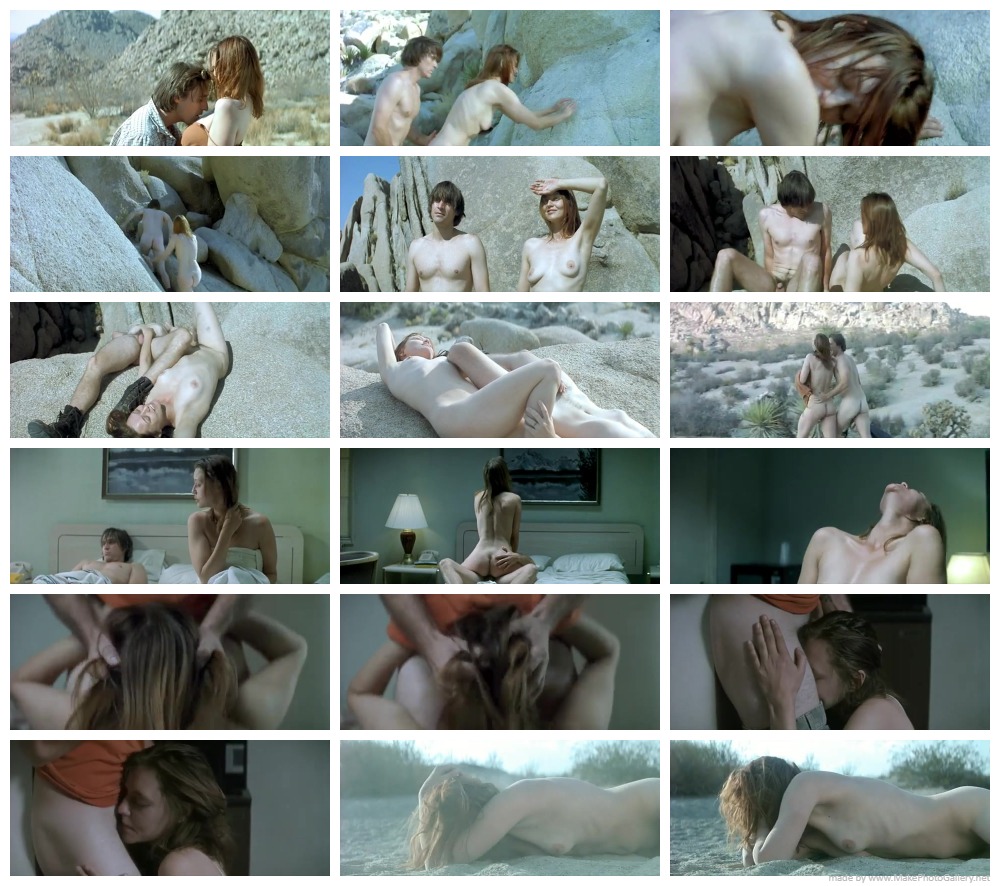
David, an independent photographer, and Katia, an unemployed woman, leave Los Angeles, en route to the southern California desert, where they search a natural set to use as a backdrop for a magazine photo shoot. They find a motel in the town of Twentynine Palms and spend their days in their sport-utility vehicle, discovering the Joshua Tree Desert, and losing themselves on nameless roads and trails. Frantically making love all the time and almost everywhere, they regularly fight, then kiss and make up, with little else going on in their empty relationship and quite ordinary daily life–until something horrible and hideous brutally puts an end to their trip.
When viewed through a foreign lens, as in Wim Wenders’ Paris, Texas or Michelangelo Antonioni’s Zabriskie Point, the American landscape can take on an illuminating strangeness that would be impossible for a homegrown filmmaker to duplicate, because the terrain is too familiar. Boredom and outrage, in that order, have greeted French director Bruno Dumont’s provocative road movie Twentynine Palms wherever it’s been screened, but its sense of America as an alien country, with impossibly distant horizons and a low-level buzz of hostility, is never less than mesmerizing. Save for petty arguments and intermittent bouts of animalistic sex, nothing much happens in the film’s first 105 minutes, yet the California desert takes on a hypnotic life of its own, suffused by Dumont’s eerie tone and graphically pleasing Cinemascope compositions.
A philosopher turned filmmaker, Dumont most recently made 1997’s The Life Of Jesus and 2000’s Humanité, which viewed human behavior from an almost anthropological perspective, looking past basic civility in order to see the primitive and often violent instincts that lurk just under the surface. Leaving his native city of Bailleul for the first time, Dumont transplants this same queasy mix of ennui and brutality to the arid region of Joshua Tree National Park, where the remote isolation breeds a special intensity and danger. Lovers on the brink, David Wissak and Katia Golubeva leave Los Angeles to scout the area for a magazine shoot, but most of the time they’re either fighting or fucking, with few moments of real tenderness to salve a relationship that’s clearly in its death throes. In returning to nature, the problems between this dysfunctional Adam & Eve find expression in their increasingly aggressive (and unintentionally silly) sexual acrobatics.
It’s hard to get past the pervasive awkwardness of Twentynine Palms—including the immortal line, “Someday, I want to see you pee”—and it’s even harder to swallow the shockingly gory finale, which unloads some view of human nature known only to Dumont. But for most of the way, the film is perceptive about the hot-and-cold volatility of wounded relationships, when couples are struggling to communicate yet familiar enough to exploit each other’s weaknesses. Dumont has referred to Twentynine Palms as “an experimental horror film,” which it most definitely becomes in the closing minutes, but his superbly controlled and disorienting atmosphere functions best in support of a troubled love story, rather than arbitrary spasms of violence. At the very least, it’s an experience guaranteed to leave viewers shaken, if not exactly grateful.









